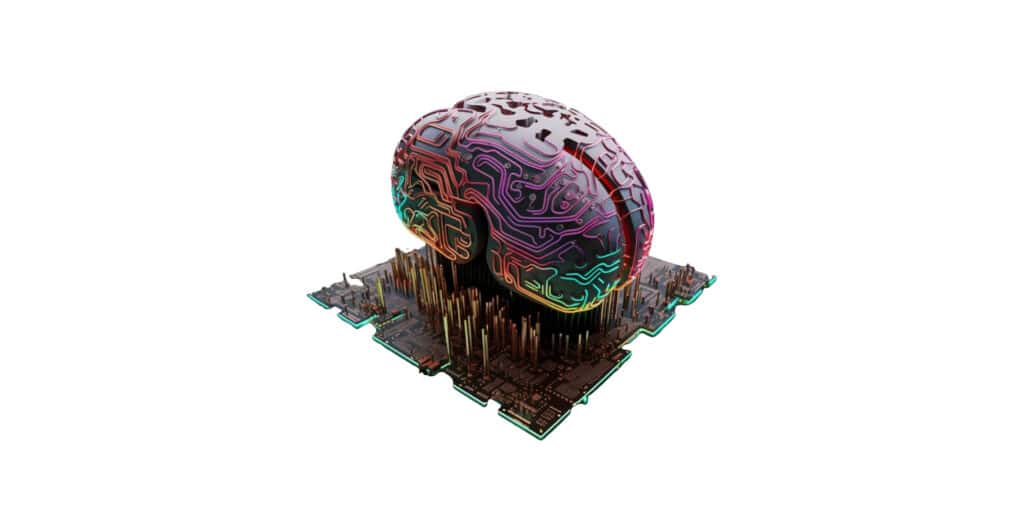Artificial intelligence (AI), also called AI (from English Artificial Intelligence), is one of the hottest topics in the technology world today. But what does artificial intelligence actually mean? How does it work and what types of AI are there? In this article, we'll explore everything you need to know about artificial intelligence, from the basic concepts to the future outlook and how you can prepare for an AI-powered world.
What is artificial intelligence?
Artificial intelligence refers to computer programs that can perform tasks that normally require human intelligence. This includes capabilities such as learning from experience, understanding natural language, recognizing patterns and making decisions. AI systems can range from simple algorithms that sort emails to advanced systems that can diagnose diseases or control autonomous vehicles.
Artificial intelligence definition
In Norway, the government has drawn up a national strategy for artificial intelligence. According to this strategy, AI is defined as systems that display intelligent behavior by analyzing the environment and making decisions with a certain degree of independence to achieve specific goals.
Types of artificial intelligence
There are different types of AI, which can be categorized in different ways:
- Narrow Artificial Intelligence (ANI)
- Artificial General Intelligence (AGI)
- Generative artificial intelligence
Narrow Artificial Intelligence (ANI)
Narrow AI is designed to perform specific tasks, such as playing chess or recommending movies on Netflix. This type of AI is highly effective within its specific domain, but has no understanding outside of this.
Artificial General Intelligence (AGI)
General AI, also known as “strong AI”, is a type of AI that can perform any intellectual task that a human can. This type of AI currently exists only in theory and is a target for future research.
Generative artificial intelligence
Generative AI can create new content, such as writing articles, creating music or designing images. This type of AI uses advanced algorithms to analyze large amounts of data and then generate new works based on this analysis.
How does artificial intelligence work?
To understand how AI works, we need to look at some of the most central methods:
Machine learning
Machine learning is a method where AI systems learn from data rather than being explicitly programmed. Algorithms identify patterns in the data and use these patterns to make decisions or make predictions. For example, a machine learning algorithm can analyze thousands of medical images to learn to recognize signs of cancer.
Deep learning
Deep learning is a subcategory of machine learning that uses neural networks with many layers to analyze large amounts of data. This method is particularly effective for tasks such as image and speech recognition.
Natural Language Processing (NLP)
NLP techniques enable AI to understand, interpret and generate human language. Examples of NLP include chatbots and personal assistants such as Siri and Google Assistant.
Expert systems
These systems use a knowledge base of human expertise to make decisions. They are often used in medical diagnostics and other specialized areas.
AI in our everyday life
Artificial intelligence has slowly but surely become an indispensable part of our everyday life. Here are some examples of how AI affects our daily routines:
- Smartphones: Facial recognition and voice-controlled assistants
- Navigation apps: Real-time traffic analysis and route optimization
- Online shopping: Personalized product recommendations
- Social media: Content curation and facial recognition
- Email: Spam filtering and automatic replies
Artificial intelligence examples
Here are some practical examples of how AI is used today:
- Recommendation systems on streaming services such as Netflix and Spotify
- Automatic image recognition on social media
- Voice assistants such as Siri and Alexa
- Self-driving cars
- Robotic surgery in the healthcare system
Artificial intelligence in the health service
AI has the potential to transform healthcare in several ways:
Artificial intelligence saves lives
- Early diagnosis: AI can analyze medical images and patient data to detect diseases at an early stage
- Personalized medication: AI can help tailor treatments based on the patient's genetics and medical history
- Robotic surgery: AI-powered robots can assist surgeons during complex operations
- Chronic disease monitoring: AI-powered devices can monitor vital signs in real time
- Mental health: AI-powered chatbots can offer support to people struggling with anxiety or depression
Artificial intelligence in school
AI has the potential to revolutionize the education sector:
- Personalized learning: AI can adapt teaching to each individual student's needs and learning style
- Automatic assessment: AI can help teachers correct assignments and provide feedback
- Intelligent tutoring systems: AI-powered systems can provide students with one-to-one tutoring
- Administrative efficiency: AI can help with time planning and resource allocation
Course in artificial intelligence
With the growing importance of AI, many educational institutions are now offering courses in artificial intelligence. These courses often cover topics such as:
- Basic AI concepts
- Machine learning and deep learning
- Natural language processing
- Ethical aspects of AI
Artificial intelligence in business
AI is also transforming business on several fronts:
- Customer service: AI-powered chatbots can handle customer inquiries around the clock
- Predictive analytics: AI can predict market trends and customer behavior
- Automation: AI can take over repetitive tasks and free up human resources
- Personalization: AI can adapt products and services to individual customer preferences
Artificial intelligence shares
Investing in AI companies has become popular. Some leading companies in AI technology include:
- NVIDIA (hardware for AI)
- Alphabet (Google's parent company)
- IBM (AI services and Watson)
- Microsoft (Azure AI Platform)
Ethical considerations around artificial intelligence
While AI brings many benefits, it also raises important ethical questions:
- Privacy: How to protect personal data used in AI systems?
- Bias: How to ensure that AI systems do not discriminate or reinforce existing prejudices?
- Liability: Who is responsible when AI systems make wrong decisions?
- Job displacement: How to deal with potential job losses due to AI automation?
The future of artificial intelligence
AI continues to develop rapidly, with several exciting trends on the horizon:
- Improved natural language understanding and generation
- More sophisticated AI agents that can perform complex tasks
- Increased integration of AI into Internet of Things (IoT) devices
- Advances in quantum computing that could accelerate AI capabilities
National strategy for artificial intelligence
Many countries, including Norway, are working on national strategies to exploit the potential of AI in the best possible way. These strategies often focus on promoting research and development, ensuring the ethical use of AI, and preparing the workforce for the coming changes.
How to use artificial intelligence
For those looking to explore AI, here are some ways to get started:
- Experiment with AI tools: Try tools like TensorFlow or PyTorch
- Participate in online courses: Platforms such as Coursera and edX offer AI courses
- Follow AI News: Keep up to date with the latest AI trends and developments
- Explore AI apps: Try different AI-powered apps to see the technology in action
Preparing for an AI-powered world
As we look to the future, there is no doubt that artificial intelligence will play an ever-increasing role in our lives. Here are some key areas to focus on:
- Education and Skills: Upgrade your skills and knowledge in AI and related fields
- Focus on creative skills, emotional intelligence and critical thinking
- Explore specialist fields such as AI ethics, machine learning and data science
- Be prepared for changes in the labor market
- Consider long-term investments in AI-related fields and technologies
Conclusion
Artificial intelligence is no longer science fiction, but a technology that shapes our everyday life and future. From healthcare and education to business and personal use, AI is changing the way we live and work. As we continue to explore the potential of this technology, it is important to be aware of both the opportunities and challenges it brings. By understanding the basics and staying informed about developments, we can all be better prepared for a future where AI plays an ever-increasing role.








